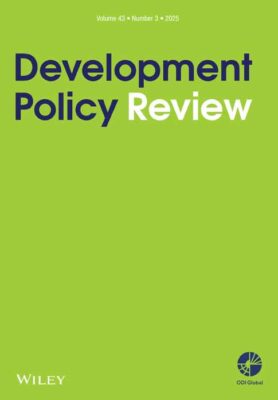Motivation
Taxation has received increasing attention from researchers and in the context of development policy, though less attention has been paid to the gendered impacts of taxation, particularly in lower-income countries.
Purpose
We seek to understand how taxation affects men and women differently and relates to gender equity in lower-income countries. In turn, we aim to identify how researchers and policy-makers can further a feminist fiscal agenda to strengthen gender equity.
Approach and methods
We review the growing evidence on how tax policy and administration affect the lives and livelihoods of women in lower-income countries. Through this review of research and development practice, we identify impact gaps and channels through which taxation can lead to gendered outcomes.
Findings
Three findings emerge. First, in considering the impact of tax policy on gender outcomes, there is a need to focus on those issues that most affect women in lower-income countries. In part, this means focusing on the ways in which the informal sector is taxed, as well as how subnational and informal taxes and fees affect men and women differently. Second, while research has focused on the impacts of tax policy on gender outcomes, greater attention needs to be paid to the gendered impacts of tax administration. Third, bringing a gender lens to tax and development requires considering revenue and expenditure together to ensure that the effects of progressive tax policies are not undermined by gender-insensitive budgets.
Policy implications
An evidence review points to various ways that policy-makers can try to ensure that taxation does not negatively affect gender equity, including rethinking how the informal sector is taxed, supporting women within tax administrations, undertaking progressive tax policy, and linking tax policies to gender-sensitive budgeting.
